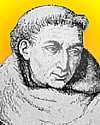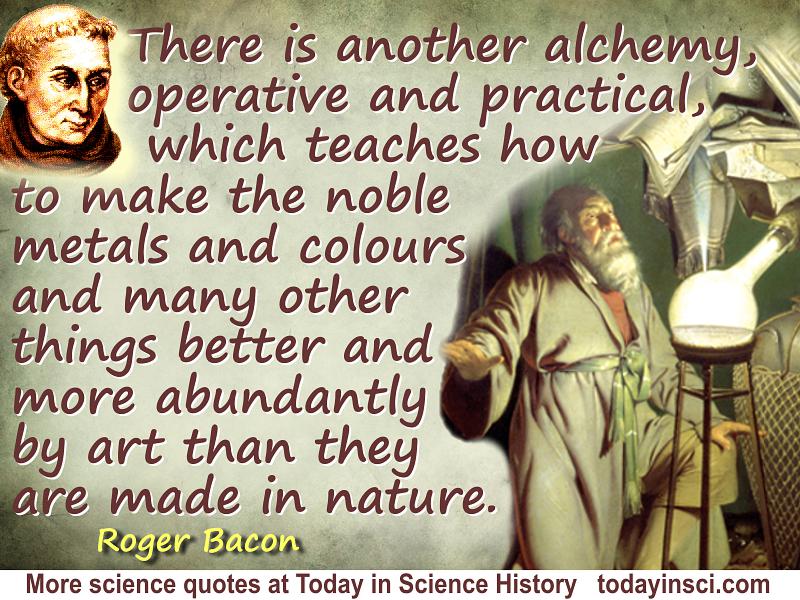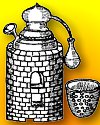 (source)
(source)
|
Roger Bacon
(c. 1220 - 11 Jun 1292)
English scholar who was one of the first to propose mathematics and experimentation as appropriate methods of science. He even speculated about flying machines and mechanically propelled carriages.
|
Roger Bacon
Context of quote “There is another alchemy”
Illustrated Quote - Large (800 x 600 px)
“There is another alchemy, operative and practical, which teaches how to make the noble metals and colours and many other things better and more abundantly by art than they are made in nature.”
— Roger Bacon
In Opus Tertium.
More Roger Bacon quotes on science >>
This translated version of the quote is given by Alistair Cameron Crombie in his The History of Science from Augustine to Galileo. It comes from Roger Bacon's Opus Tertium. Crombie states that “Roger Bacon, having discussed speculative alchemy, goes on to say:”
“But there is another alchemy, operative and practical, which teaches how to make the noble metals and colours and many other things better and more abundantly by art than they are made in nature. And science of this kind is greater than all those preceding because it produces greater utilities. For not only can it yield wealth and very many other things for the public welfare, but it also teaches how to discover such things as are capable of prolonging human life for much longer periods than can be accomplished by nature … Therefore this science has special utilities of that nature, while nevertheless it confirms theoretical alchemy through its works.”
Crombie comments on Bacon's insight that “in his conception of the immediate use of science he had almost the outlook of the 19th century.”
Quote from Opus Tertium [1266-1268], chapter 12, as translated and commented in A. C. Crombie, Augustine to Galileo (1959), Vol. I, 69. (source)
See also:
- Science Quotes by Roger Bacon.
- 11 Jun - short biography, births, deaths and events on date of Bacon's death.
- Roger Bacon - context of quote there is another alchemy - Medium image (500 x 350 px)






